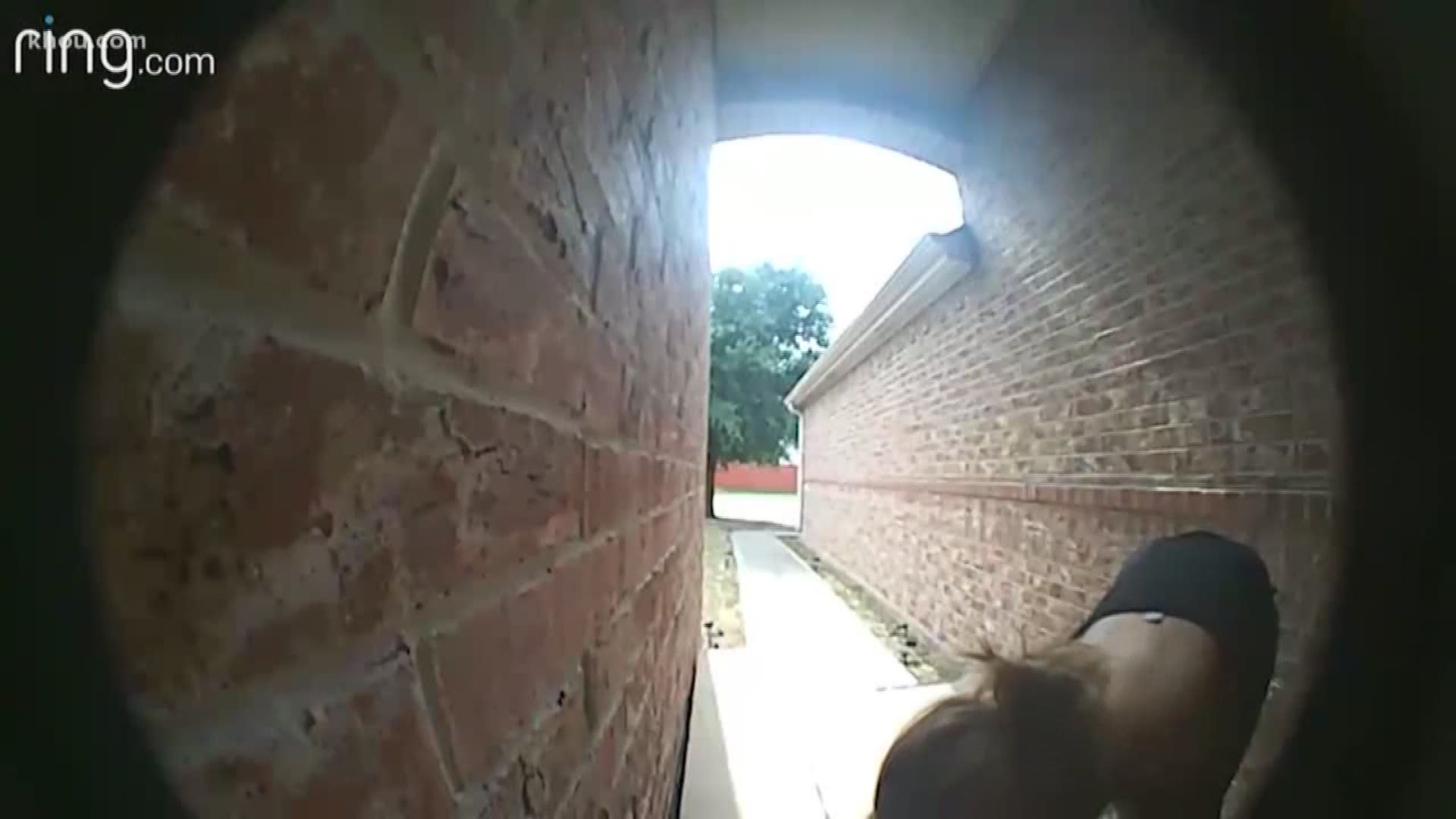MONTGOMERY COUNTY, Texas — A wrinkle in Texas’ new package theft law allowed a group of teens caught stealing to avoid felony charges.
“I can’t stand a thief,” said Montgomery County Precinct 2 Constable Gene DeForest.
The constable caught four 14-year-olds stealing packages from someone’s porch in River Plantation Saturday.
After opening one box and finding only one stuffed animal, the four teens dumped both packages in nearby woods. Even under the state’s new package theft law, they also dodged a trip to jail.
“When somebody takes something that doesn’t belong to them, that’s a violation of me personally,” DeForest said. “It’s to the point that people don’t seem to care about the consequences or think about the consequences.”
Before the new law took effect Sept. 1, no law specific to porch theft existed.
As with other property crimes, under the old law those caught would do time based on value. For example, property stolen worth less than $2,500 was a misdemeanor. That means thieves would have to steal property worth more than $300,000 to be charged with first-degree felony theft.
But the new state law counts the number of addresses targeted. Theft from 10 addresses is a state jail felony. A first-degree felony requires crimes at 50 addresses. (However, if thieves know their targets are disabled or elderly punishments rise a level.)
In the Montgomery County teens’ case, stealing two packages qualified as a Class A Misdemeanor. All four involved went home instead of to jail.
If you ask DeForest it is progress.
“I think that may deter people once word gets around,” he said. “I hope it does. When you steal something from somebody you’re taking part of their life. It’s wrong. It’s wrong 100 percent.”
FULL TEXT OF HOUSE BILL 37:
H.B. No. 37 AN ACT relating to the creation of the criminal offense of mail theft. BE IT ENACTED BY THE LEGISLATURE OF THE STATE OF TEXAS: SECTION 1. Chapter 31, Penal Code, is amended by adding Section 31.20 to read as follows:
Sec. 31.20. MAIL THEFT. (a) In this section: (1) "Disabled individual" and "elderly individual" have the meanings assigned by Section 22.04. (2) "Identifying information" has the meaning assigned by Section 32.51. (3) "Mail" means a letter, postal card, package, bag, or other sealed article that: (A) is delivered by a common carrier or delivery service and not yet received by the addressee; or (B) has been left to be collected for delivery by a common carrier or delivery service. (b) A person commits an offense if the person intentionally appropriates mail from another person's mailbox or premises without the effective consent of the addressee and with the intent to deprive that addressee of the mail.
(c) Except as provided by Subsections (d) and (e), an offense under this section is: (1) a Class A misdemeanor if the mail is appropriated from fewer than 10 addressees; (2) a state jail felony if the mail is appropriated from at least 10 but fewer than 30 addressees; or (3) a felony of the third degree if the mail is appropriated from 30 or more addressees. (d) If it is shown on the trial of an offense under this section that the appropriated mail contained an item of identifying information and the actor committed the offense with the intent to facilitate an offense under Section 32.51, an offense under this section is: (1) a state jail felony if the mail is appropriated from fewer than 10 addressees; (2) a felony of the third degree if the mail is appropriated from at least 10 but fewer than 20 addressees; (3) a felony of the second degree if the mail is appropriated from at least 20 but fewer than 50 addressees; or (4) a felony of the first degree if the mail is appropriated from 50 or more addressees. (e) An offense described for purposes of punishment by Subsection (d)(1), (2), or (3) is increased to the next higher category of offense if it is shown on the trial of the offense that at the time of the offense the actor knew or had reason to believe that an addressee from whom the actor appropriated mail was a disabled individual or an elderly individual. (f) If conduct that constitutes an offense under this section also constitutes an offense under another law, the actor may be prosecuted under this section, the other law, or both. SECTION 2. This Act takes effect September 1, 2019.
ALSO POPULAR ON KHOU.COM


